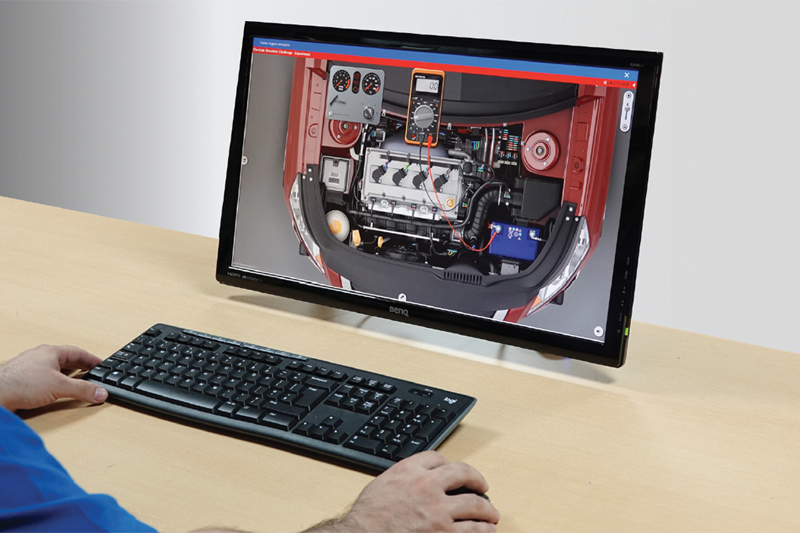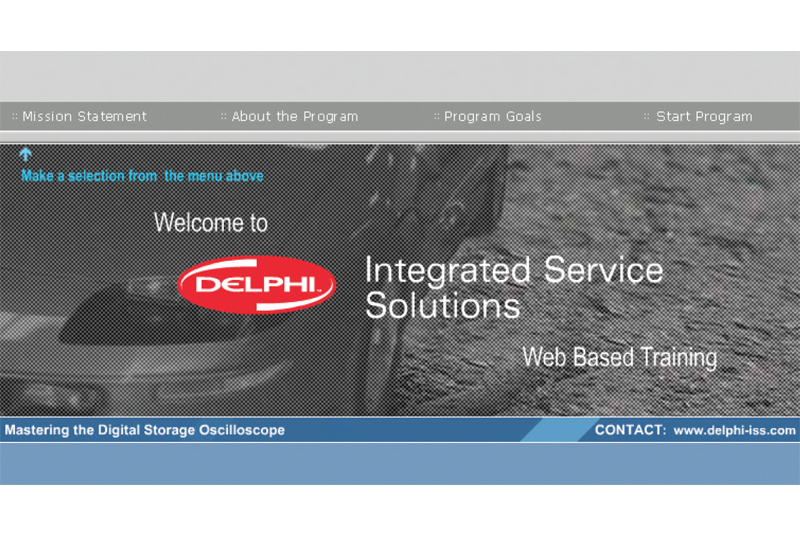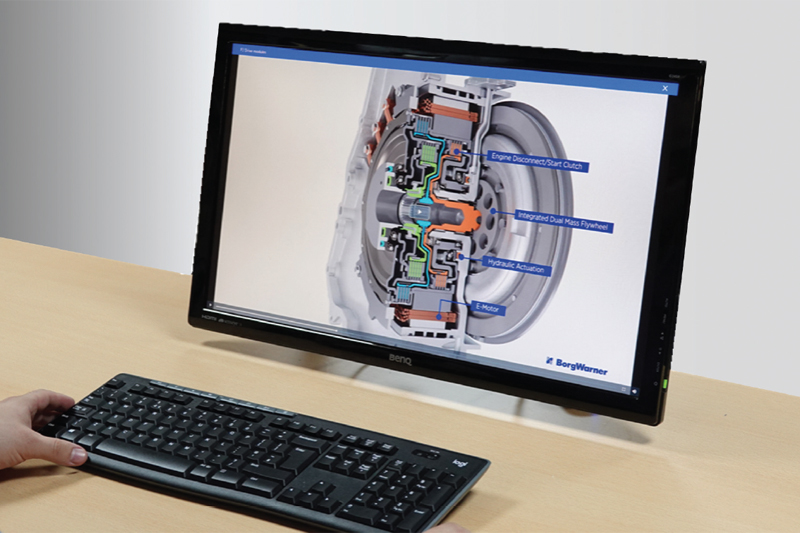
According to Delphi Technologies, motor factors have a unique opportunity to get one step ahead of their competition by taking advantage of the updated Delphi Technologies Academy training platform.
Introduced last year, the online training portal provides quick and straightforward training on all aspects of modern vehicle repair and maintenance, which will be “invaluable” to factors providing parts and tools to the service and repair industry.
It benefits from regular updates and works to provide an insight and understanding on some of the latest technologies that are being introduced onto vehicles. For motor factor personnel, Delphi Technologies believes this level of information could be difficult to access, but the Academy ensures it is delivered as conveniently as possible.
For example, understanding the needs of the latest EV repairs opens up a raft of retail provisions, as the hazardous voltage found on EVs demands specialist equipment and tooling. Understanding the way it works, as well as how to repair it, will equip forward-thinking motor factors to meet the needs of their customers.
But it’s not just electric and hybrid vehicles that are covered in the Delphi Technologies Academy. Autonomous features, such as adaptive cruise control, emergency braking and advanced headlamps, all provide a revenue stream. Delphi Technologies reports that these complex systems require some investment to fully understand, so trained motor factors will be ready to serve customers.
Learn the acronyms!
Each online course is IMI Continuing Professional Development (CPD) accredited, so staff benefit from education and training that is recognised across the industry.
Each video includes an overview, concluding with a quiz to test learning; for instance, the ADAS overview breaks down a whole host of acronyms. It explains the Society of Automotive Engineers (SAE) classification of ADAS systems from Level 1 (driver assistance) to Level 5 (no steering wheel, completely autonomous). As these technologies progress, the vehicle parc is beginning to adopt higher levels of autonomy – Tesla’s ‘Full Self-Driving’ capability can accelerate, brake, steer and change lanes without driver input.

Adaptive Cruise Control (ACC) is a good example of a technology that has filtered down from luxury vehicles to more mainstream cars. It uses a radar to monitor traffic ahead, to maintain a safe distance from the vehicle in front, then accelerate to a set speed when the road ahead is clear. It’s even fitted to smaller, inexpensive cars, like the Toyota Yaris, and such features have also been available on commercial HGVs for some time.
ACC is often paired with Autonomous Emergency Braking (AEB), a useful driver aid in urban environments. AEB uses a radar to scan for hazards ahead, and automatically applies braking if it senses an imminent collision. Both systems rely on a carefully calibrated radar facing forward, sometimes mounted in or behind the grille or front bumper.
Huge strides in headlamp technology
Delphi Technologies’ advanced lighting technologies course takes just 25 minutes to complete, and discusses the various types of lighting used on contemporary vehicles. Most will be comfortable with commonplace tungsten/halogen bulbs and xenon lighting, but Delphi Technologies says that newer LED and laser lights require a level of knowledge that its training can deliver quickly and cost-effectively.
Instead of being a passive component, adaptive headlights become an active system reliant on data from a calibrated camera installed on the car. The aim is to produce an intelligent, dynamic beam pattern that provides optimal vision for the driver, while protecting surrounding traffic from being dazzled with excess light. Something as simple as incorrect tracking can upset these functions.
Of course, being at the front of the car, headlamps, cameras and radars are vulnerable in frontal collisions, and, thus, make up a high-turnover part for insurance repairs. Appreciating this technology, and being ready to answer questions from the trade, represent a huge opportunity for business for motor factors, according to Delphi Technologies Aftermarket UK and Nordics Technical Services Manager, Luke Garratt.

He said: “We recognised the increasingly urgent need for the aftermarket industry to have access to vehicle training a long time ago. The Delphi Technologies Academy online tutorials, such as the ADAS suite of videos, are part of our solution to help address the huge shortage in motor factor personnel having the skills to understand and support ADAS-equipped vehicles.
“The industry is changing fast, with autonomous technologies and electrification changing the landscape for motor factors. Just as traditional parts supply is a profit opportunity, retailers need to be aware of how these systems work, and how they can fail. Fulfilling the demands of repairers who are tackling these vehicles is a huge opportunity for motor factors and should increase loyalty from customers looking for the latest level of knowledge. With the technology being so fresh, the Academy training content is suitable for those who are just starting out on their career right through to the ‘greybeards’ of our industry.
“By offering technical support above and beyond parts supply, motor factors will increase loyalty from their customers. In the highly competitive world of aftermarket retail, those that understand new technologies will be best equipped to help busy garages get their customers back on the road.”







